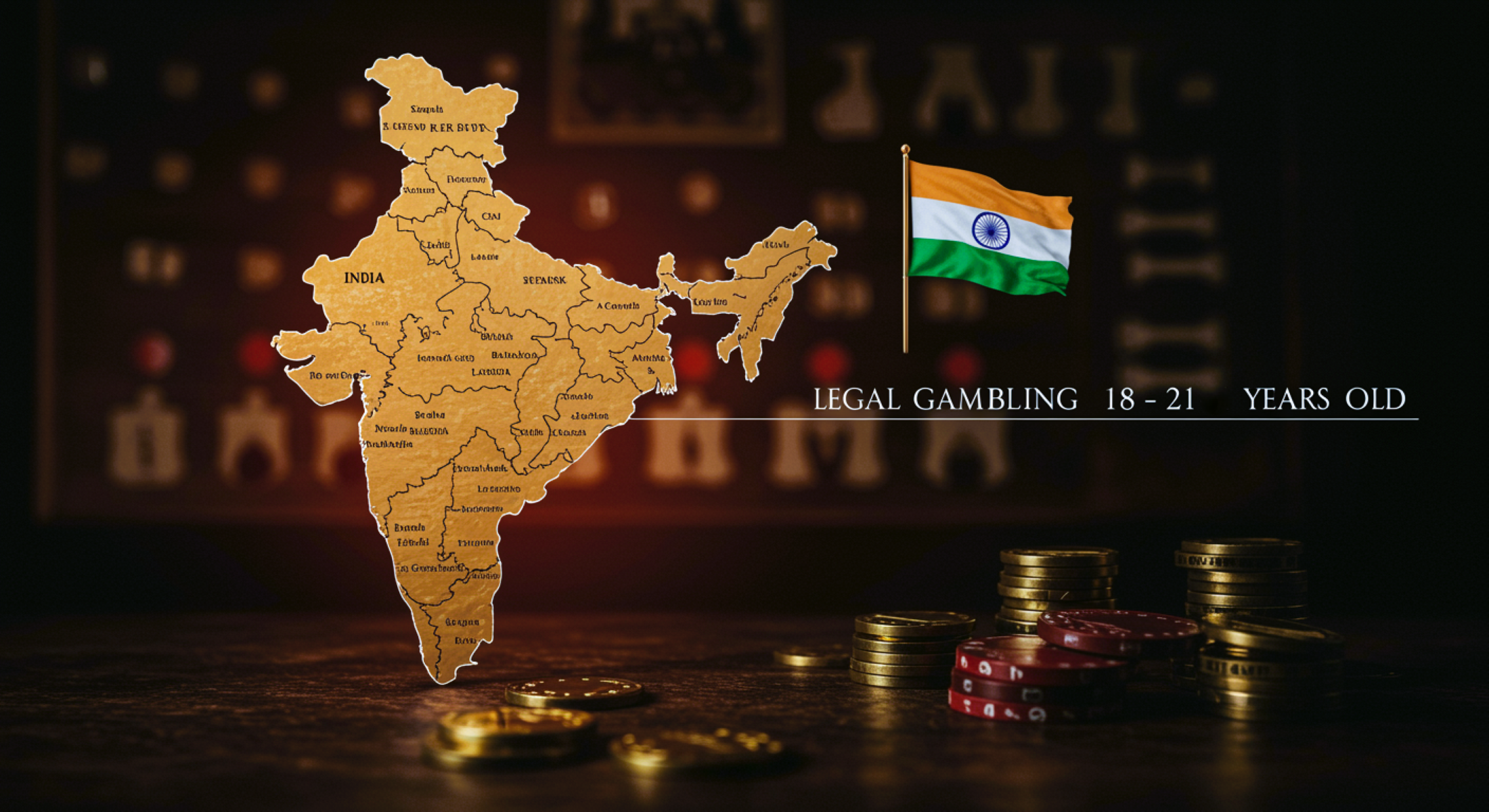Poker, a game of strategy, skill, and nerve, is enjoyed globally by millions. With tournaments like the World Series of Poker (WSOP) and European Poker Tour (EPT) drawing players from every corner of the globe, it’s no surprise that the allure of international poker competitions is irresistible. But if you’re an Indian player wondering whether you’re eligible to participate in such prestigious events, you might have more questions than answers.
What is Global Poker
Global poker refers to the international landscape of poker tournaments, encompassing both online and live events. These tournaments bring together players from all over the world, offering an opportunity to compete at the highest level. The significance of global poker tournaments lies in the prestige associated with them, the large cash prizes, and the recognition players receive for excelling in such events. Some of the most famous global poker tournaments include the World Series of Poker (WSOP), the European Poker Tour (EPT), and the Asia-Pacific Poker Tour (APPT). These tournaments are renowned for their high-stakes action and attract thousands of participants, ranging from beginners to seasoned professionals.
The format of global poker tournaments can vary greatly depending on the type of event and the tournament organizer. While Texas Hold’em is the most widely played poker variant in these tournaments, other variations like Omaha, Seven-Card Stud, and more can also be part of the competition. Players can compete in either live tournaments, where they gather in physical locations, or online events, where they participate remotely from anywhere in the world. Regardless of the format, global poker tournaments are seen as the pinnacle of competitive poker, offering participants the chance to prove their skills on the world stage and claim massive rewards in the process.
Eligibility Criteria for Global Poker Tournaments
Global poker tournaments have specific eligibility criteria that players must meet in order to participate. These criteria are put in place to ensure that players adhere to the rules of the tournament and are legally allowed to compete. The most basic eligibility requirement is that players must meet the minimum age limit, which is typically set at 18 years old, although this can vary depending on the jurisdiction. This ensures that players are legally considered adults and can responsibly handle the financial stakes involved in poker competitions. In some countries, this age requirement may be higher, particularly in places where gambling laws are stricter.
In addition to age restrictions, players must also ensure they are located in a region where online poker is legal if they wish to compete in online tournaments. Some countries have legal restrictions on online gambling, and players from these regions may be unable to participate. For live tournaments, players must meet any visa and travel requirements to attend the event in person. Furthermore, players often need to register for tournaments in advance and pay a buy-in fee. Some tournaments may have additional requirements, such as demonstrating previous tournament experience or qualifying through satellite events. Players should always verify the specific eligibility requirements of each tournament they wish to enter, as these can vary based on the organizer and the format of the event.
Are Indian Players Eligible for Global Poker Tournaments?
In short, Indian players are absolutely eligible to participate in global poker tournaments. Poker is a popular game worldwide, and Indian players have made their mark on the global poker scene in recent years. However, there are some specific considerations and challenges that players from India should be aware of before entering these prestigious tournaments, particularly with regard to online platforms and travel for live events. While Indian players face some logistical obstacles, they are not barred from competing against the best poker players from around the world.
Nationality: No Restrictions for Indian Players
There are no specific nationality-based restrictions preventing Indian players from participating in international poker tournaments. As long as they meet the standard eligibility criteria, such as being over the age of 18, and follow the tournament’s registration process, Indian players can join global poker competitions just like players from other countries.
In fact, there have been numerous successful Indian poker players who have participated in high-stakes events like the World Series of Poker (WSOP) and the European Poker Tour (EPT). Indian players who are legally eligible to play poker in their home country can compete internationally, so long as they comply with the specific rules of the tournament they wish to enter. These tournaments often have different rules for online and live participation, so understanding the specific conditions of each event is crucial.
Online Poker Platforms: Indian Players Can Compete Internationally
Indian players can also take part in online poker tournaments hosted by some of the biggest platforms in the world. Websites like PokerStars, 888Poker, and Global Poker are open to players from India, making it relatively easy for players to get involved in international poker competitions from the comfort of their homes. As long as players ensure they are adhering to the legal and regulatory guidelines of their region, they can join global poker tournaments and even qualify for major events through satellite tournaments.
However, despite the opportunities, there are some hurdles Indian players may face on online poker platforms:
- Payment Gateway Issues: One of the biggest challenges Indian players encounter when trying to participate in online global poker tournaments is the payment process. Many international poker platforms have trouble processing payments for Indian players, particularly deposits and withdrawals. Indian banks often block transactions related to online gambling, making it difficult to fund poker accounts or collect winnings.
- Platform Restrictions: Some poker platforms may limit access to certain tournaments based on geographical location or specific legal regulations in India. While sites like PokerStars are open to Indian players, it’s essential for players to verify the available options and ensure the platforms accept players from their state.
Despite these challenges, the accessibility of online poker has opened up the global poker scene for Indian players. Players simply need to carefully navigate the legal and financial aspects to participate in online tournaments.
Challenges Faced by Indian Players in Live Global Poker Tournaments
While Indian players can participate in both online and live global poker tournaments, they often face additional challenges when traveling abroad for live events. For instance:
- Visa and Travel Restrictions: Many international tournaments are held in countries that require Indian players to obtain a visa. This process can sometimes be lengthy and complex, and there may be additional hurdles for players who have never traveled abroad. Players need to plan ahead, ensuring they meet all the visa and travel requirements in order to compete in live events.
- Currency Exchange and Payment Methods: When attending live tournaments, Indian players may struggle with currency exchange and making payments to cover tournament fees. International banking regulations and exchange rate issues can complicate the financial aspects of traveling for poker events, requiring careful planning and assistance from the event organizers or financial experts.
Thus, while Indian players are eligible to participate in global poker tournaments, they must ensure they are fully prepared for the challenges associated with both online and live poker events. With the right preparation and attention to detail, Indian players can successfully enter the global poker scene and even make a significant impact.
Global Poker Laws and Regulations
Poker laws vary from country to country, and this is particularly true when it comes to both online and live poker tournaments. In some regions, poker is well-regulated, and players have clear guidelines on what is permissible, whereas, in others, the legal landscape can be quite complicated. For example, in the United States, there are well-defined regulations around both online and live poker, with federal and state governments offering detailed laws and protections for poker players. However, in other regions, such as India, the legal situation is more complex, with varying regulations across different states and jurisdictions.
When it comes to international poker tournaments, players must always consider the legal environment surrounding poker in their home country. In places where poker is recognized as a game of skill rather than a game of chance, players are often able to participate more freely in global poker events. Conversely, countries with stricter gambling laws can pose significant challenges for players. In countries like India, where gambling laws differ across states, players need to be mindful of the regulations in their specific state before participating in online or live poker tournaments abroad. These laws can impact not only the ability to play poker online but also the logistics of traveling abroad for live events.
Online Poker and Live Poker Regulations
The legal status of online poker and live poker varies greatly between countries, and this can have a significant impact on a player’s ability to participate in international tournaments. In countries where online poker is legal, players can register and compete in global poker tournaments without any major hurdles. For example, online poker platforms like PokerStars, 888Poker, and Global Poker often have clear rules for players from countries where online gambling is legal, making it easy for them to register and join international events.
However, the situation becomes more complicated when it comes to live poker tournaments. While some countries allow their residents to play poker online, the legality of traveling abroad for live poker tournaments may involve more intricate regulations. For instance, players in India may be able to participate in online poker events, but when it comes to attending live tournaments overseas, they may face issues such as visa restrictions or the need to comply with specific local gambling laws. This creates additional barriers for Indian players who want to compete on the international stage in live poker events. As a result, understanding the differences in the regulation of online versus live poker is crucial for Indian players aspiring to compete globally.
Challenges Faced by Indian Players in Global Poker Tournaments
Indian players who aspire to participate in global poker tournaments face a variety of challenges, particularly when it comes to accessing payment gateways and dealing with visa and travel restrictions. These obstacles can make it more difficult for players to participate in international events, whether they are online or live tournaments.
Payment Gateway Issues
One of the most significant challenges for Indian players is navigating the complexities of online payment gateways. While many international poker platforms welcome players from India, Indian banks often block transactions related to online gambling due to the country’s banking regulations. This can make it challenging for players to deposit money into their accounts or withdraw winnings. Players may need to find alternative payment methods such as e-wallets, cryptocurrencies, or other payment solutions that bypass traditional banking restrictions.
The lack of easy access to payment gateways can create frustration for players who want to participate in global poker tournaments. Despite the rapid growth of the poker community in India, these payment restrictions remain a significant barrier for many players who wish to compete on the world stage. Therefore, Indian players must be proactive in finding reliable methods for funding their accounts and withdrawing their winnings to ensure they can take full advantage of online poker opportunities.
Travel and Visa Restrictions
Another hurdle Indian players face is securing visas and navigating the travel requirements to attend live global poker tournaments. Countries that host international poker events often have strict visa policies, and it can be both expensive and time-consuming for Indian nationals to obtain the necessary travel documents. Additionally, some countries may not issue visas for players from certain regions or may have additional restrictions based on the applicant’s profession or purpose of travel.
Securing a visa to attend live poker tournaments can be especially challenging for players who are new to international travel. The costs of obtaining a visa, along with the expenses associated with traveling to an international poker tournament, can add up quickly. As a result, many Indian players face financial and logistical obstacles that prevent them from fully participating in global poker events. To overcome these challenges, Indian players need to plan ahead, research visa requirements, and be prepared to invest both time and money into attending these prestigious live tournaments.
| Challenge | Description | Possible Solutions |
| Payment Gateway Issues | Indian banks often block transactions related to online gambling. | Use alternative payment methods like e-wallets or cryptocurrency. |
| Visa and Travel Restrictions | Securing a visa for live tournaments can be expensive and time-consuming. | Research visa requirements early and seek professional visa assistance. |
| State-Specific Laws | Some states in India have strict gambling laws that restrict online poker. | Verify the legal status of poker in your state before participating. |
| Platform Restrictions | Some international poker platforms may not accept players from certain regions. | Choose platforms that allow Indian players and check for any region-specific limitations. |
These challenges demonstrate that while Indian players can participate in global poker tournaments, they must navigate a complex landscape of legal and logistical barriers. By understanding the laws and planning accordingly, Indian players can successfully engage in global poker tournaments and make their mark on the international poker scene.




